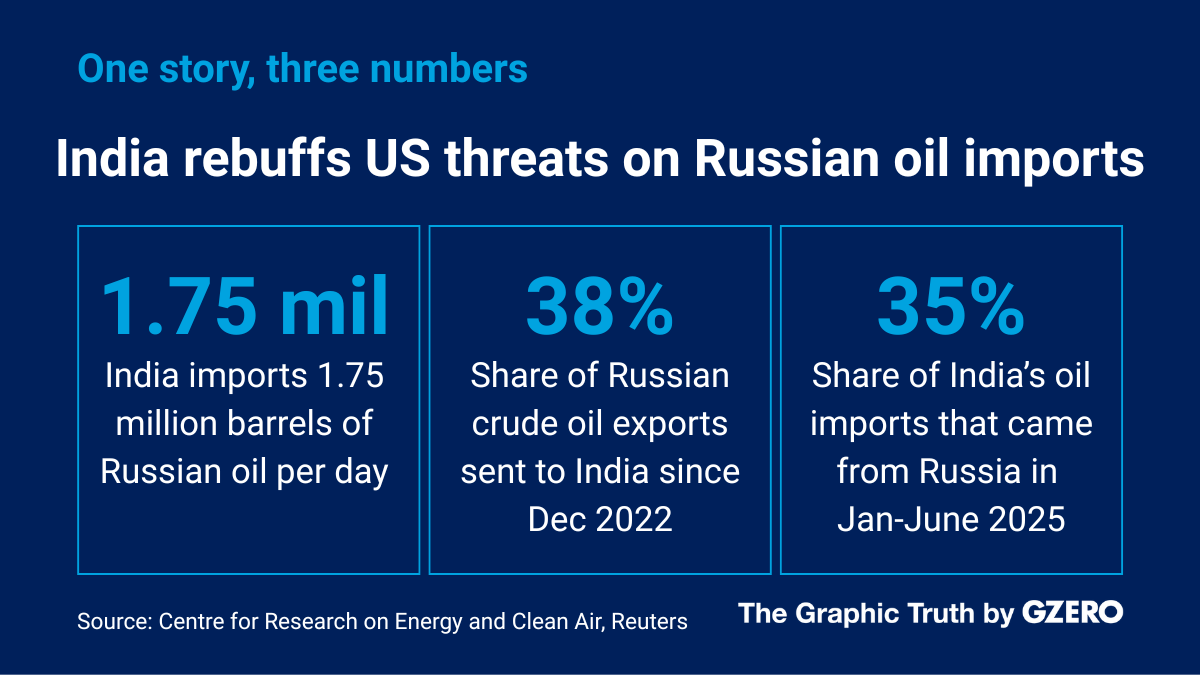August 04, 2025
India has said it will continue purchasing Russian oil, despite US President Donald Trump announcing a 25% tariff and threatening an “unspecified penalty” for doing so last week. New Delhi has ramped up its purchases of discounted Russian crude since US and European sanctions against Moscow took effect in 2022 over the Kremlin’s invasion of Ukraine. But those imports are now in Washington’s crosshairs as Putin continues to ignore Donald Trump’s demands for peace talks with Kyiv. Officials in Delhi defended their position – citing the country’s energy needs – but White House Deputy Chief of Staff Stephen Miller accused India of “financing” Russia’s war in Ukraine. Here’s a look at how important India’s purchases of Russian oil are for both countries.
More For You
Chris, an Army veteran, started his Walmart journey over 25 years ago as an hourly associate. Today, he manages a Distribution Center and serves as a mentor, helping others navigate their own paths to success. At Walmart, associates have the opportunity to take advantage of the pathways, perks, and pay that come with the job — with or without a college degree. In fact, more than 75% of Walmart management started as hourly associates. Learn more about how over 130,000 associates were promoted into roles of greater responsibility and higher pay in FY25.
Most Popular
- YouTube
Putin can't stop won't stop. #PUPPETREGIME
- YouTube
In this Quick Take, Ian Bremmer weighs in on the politicization of the Olympics after comments by Team USA freestyle skier Hunter Hess sparked backlash about patriotism and national representation.
© 2025 GZERO Media. All Rights Reserved | A Eurasia Group media company.
